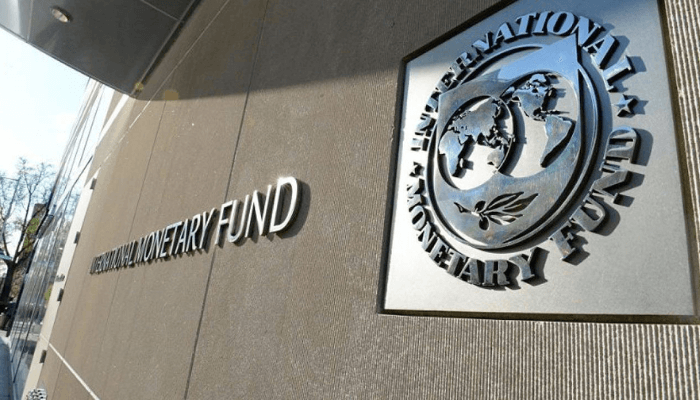The move by the Central Bank of Nigeria (CBN) to lifting the ban on 43 items it had earlier restricted from access to forex has received the commendation of the International Monetary Fund (IMF).
It further stated that it was not aware of any talks about restructuring Nigeria’s debt and that recent changes by the President Bola Ahmed Tinubu-led administration are insufficient to address the myriad of problems the nation is currently facing.
Nigeria is currently battling with foreign exchange crisis, overwhelming debt servicing burden, low revenue, rising inflation amongst other issues, a situation the Fund said can be resolved by making the reforms that are being undertaken by the government support each other.
Speaking at the Regional Economic Outlook for Sub-Saharan Africa Press Briefing at the ongoing 2023 IMF/World Bank Annual Meetings in Marrakesh, Morocco, the IMF African Department director, Abebe Aemro Selassie said, the lifting of the forex restrictions has always been canvassed by the fund.
Africa Today News, New York recalls that the CBN had on Thursday lifted the ban it placed on access to the official foreign exchange window for the importation of some items into the country. Selassie, whilst responding to the lifting of restrictions said: “on the trade restrictions, our view has always been in Nigeria, and in many other cases, our economies now are so sophisticated and complex, that I don’t think that these kinds of restrictions work.
“The best way to manage modern economy is for government authorities to have fiscal policy lever and monetary policy lever and try and use those to affect the kind of policy outcome you have rather than going and saying I don’t like these goods and so I don’t want it to come in that tends to create an unhelpful distortion. Of course, you have a tax policy that you could use if you want to lead against certain types of imports. In general, the direction in which CBN has moved I think is a helpful one,” Selassie said.
Commenting on the debt burden of the country, Selassie said ‘I am not aware of any debt discussions that are going on, debt profiling or debt restructuring in Nigeria. In Nigeria the most important cause of the pressures is the fact that the government does not generate enough tax revenue for all the services it needs to provide. Interest payment as a share of revenue is very high and not leaving much room to spend on other issues, that is the key issue that needs to be worked on.
“While there is not enough tax revenue, I think in the past reliance on oil when prices were high and second is the subsidy regime which also implies and entails lots of government resources being directed where they should not be. These are all interlinked issues including causing some of the inflation that you see because in giving the difficulty to tap the international capital market the government has had to rely more on domestic financing which of course has crowded out the private sector and put constraints on monetary injections which has weakened the exchange rate.
“You have a medley of things rooted in the fiscal challenges that Nigeria is facing in not having tax revenue. At the same time, the country has incredible potential and we have seen reforms moving in the right direction in recent months.
“What is needed, we feel, is making the reforms holistic and help reinforce each other just as things were not reinforcing each other in the past. There is scope to make the reforms reinforce each other. So, the exchange rate reforms that the government did were very welcome in trying to unify the rates. Similarly, the fuel subsidy will not help or stick unless they tighten monetary policy. Unless you are also doing something to mobilise more tax revenue.
“So, a holistic package of reforms is what is needed and we have to give a bit of time to the new administration also. The CBN governor has just been appointed, and the minister of finance has only been appointed a few weeks. We are hopeful that they will move in the right direction and we stand to provide every policy advice that the government needs.
He further said, the assessment of debts should not be based on the nominal value of a debt stock but on how it relates to many other economic variables. ‘So yes, it’s at the highest level because you mention it in naira terms but as a ratio to GDP and as a ratio to many other indicators is what you have to look at. When we look at the debt in Nigeria, our sense is that the stock is manageable in general, it is the debt servicing that is much more difficult and the debt service is hampered by the country not generating enough non-oil tax revenues. And I think that is by far the most important area of work and reform there is for any administration in Nigeria.
“Lastly, on the monetary policy coordination, I think when we pointed out that the adjustment and correction to the exchange rate gap were necessary but not sufficient is unless you underpin it with tighter monetary policy conditions, because if monetary policy conditions are loose it creates a lot of liquidity, then it’s going to create inflation and then of course exchange rate will inevitably move so unless you are tightening monetary conditions, it would not be enough.
“You have to support monetary policy with some fiscal policy tightening. The fact that the government is absorbing a lot of the liquidity to finance the large deficit it has is causing monetary policy to be loose. So that is the type of holistic and coordinated reform package Nigeria is going to need. And Nigeria has incredible politicians and policymakers, it is something that can be done and it is the political will and the decision to move in that direction that is needed,” he added.

